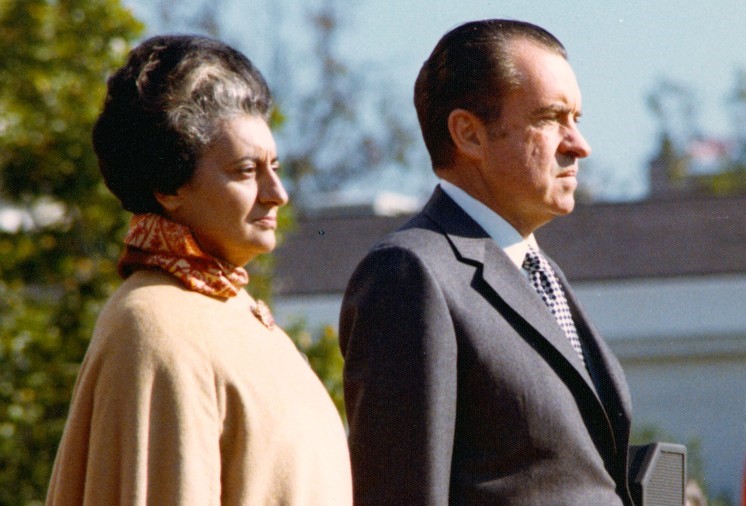By The SATimes News Service
New York: Richard M, Nixon, the late 37th president who left the White House in disgrace, used racist and sexist language to vent his frustration with India over the 1971 War, especially Indian women, possibly triggered by his well-known antipathy towards then Prime Minister Indira Gandhi, according to recently declassified White House tapes.
The comments have come under severe condemnation from the Indian American community and former diplomats who have described the statements as “appalling”, and which reflect Nixon’s ‘vulgarity’ and ‘racism’.
“Undoubtedly the most unattractive women in the world are the Indian women,” Nixon said in June 1971 to Henry Kissinger. He continued: “The most sexless, nothing, these people. I mean, people say, what about the Black Africans? Well, you can see something, the vitality there, I mean they have a little animal-like charm, but God, those Indians, ack, pathetic. Uch.”
These remarks are from the new White House recordings obtained by Gary Bass, writer of “The Blood Telegram”, the seminal book about the liberation of Bangladesh, and contained in his article for The New York Times last Thursday.
“As Americans grapple with problems of racism and power, a newly declassified trove of White House tapes provides startling evidence of the bigotry voiced by President Richard M. Nixon and Henry Kissinger, his national security adviser,” Gary Bass, professor at Princeton, wrote in the NYT op-ed titled ‘The Terrible Cost of Presidential Racism’, adding that the US policy toward South Asia under Mr. Nixon was influenced by his hatred of, and sexual repulsion toward, Indians.
Indira Gandhi had met Nixon ahead of the 1971 war that broke out in December with India liberating Bangladesh — then East Pakistan — from Pakistan defying USA. Nixon confessed what influenced his foreign policy: “They (Indians) turn me off. They are repulsive and it’s just easy to be tough with them.”
Kissinger was no less, according to Bass. On June 3, 1971, he was indignant at the Indians, while the country was sheltering millions of traumatized Bengali refugees who had fled the Pakistan army. He blamed the Indians for causing the refugee flow, apparently by their covert sponsorship of the Bengali insurgency. He then condemned Indians as a whole, his voice oozing with contempt, “They are a scavenging people.”
He also called Indians as “masters at subtle flattery. That’s how they survived 600 years. They suck up – their great skill is to suck up to people in key positions.” He did not spare India’s neighbor either: “the Pakistanis are fine people, but they are primitive in their mental structure.”
In a scathing response to Nixon’s remarks, former foreign minister K. Natwar Singh, and former diplomat Mani Shankar Aiyar spoke of him being outwitted and out-maneuvered by Indira Gandhi. Natwar Singh said Nixon’s language reflected “his vulgarity and racism”. “He was a third-rate human being and his entire record shows that and also the manner in which he was dismissed,” Singh said referring to the Watergate scandal. According to Aiyar, Nixon was infuriated with Mrs Gandhi because she did not behave like other world leaders when the “American boss wags his finger at them”. “She just went away disgusted and did her thing…she put them in their place and that is why they hated her,” he said of the Bangladesh war episode.
Said Sanjeev Joshipura, the executive director of Indiaspora, “We already knew about Nixon’s and Kissinger’s bigoted views, but the visceral nature of these comments does not behove American government leaders, and is extremely offensive to so many around the world! Moreover, it is disgustingly unprofessional to conduct foreign policy and global diplomacy hinging upon the base instincts of humankind.”
“Thankfully,” he added, “the tone and trajectory of US-India relations today is the polar opposite of the attitudes expressed by Nixon and Kissinger.”












